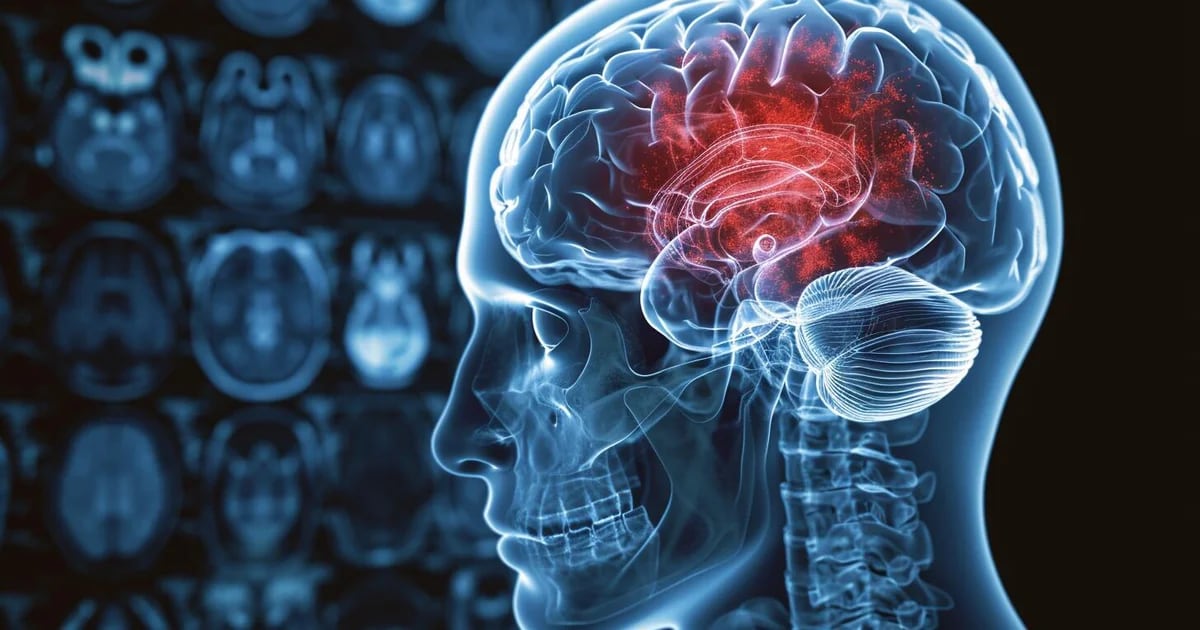Every May 30, World Health Day is celebrated. Multiple sclerosis (EM)a neurological, chronic and autoimmune disease which manifests itself mostly between 18 and 35 years of age and with a prevalence three times more frequent in women than in men.
According to the World Health Organization (WHO) this disease affects cognitive, emotional, motor, sensory or visual functions and occurs as a result of immune system attack of a person against your central nervous system (brain and spinal cord). “It is estimated that more than 1.8 million people suffer from multiple sclerosis worldwide,” the entity states.
Although it is a condition that does not affect a person’s life expectancy, it does imply a serious impact on the family, social and economic-labor environment, Therefore, mental health care becomes essential.
He diagnosis It can impact by generating surprise, concern and uncertainty. The graduate Deborah Fleschler (MN 15130), from the Mental Health Area of the Institute of Restorative Neurosciences (INERE), detailed:
“From mental health we must perceive the difficulties in acceptancewhich translate directly into psychological sufferingthe rigidity to achieve the changes necessary, the lack of adherence to treatmentsmood swings and deterioration of ties. We must not, in any way, naturalize chronic suffering, neither personal nor family,” highlighted the expert.
The fact that MS is known as the “disease of a thousand faces”means that not all people who live with the pathology have the same symptoms or go through it in the same way.
“The uncertainty about the evolution of MS anxiety. Knowing that someone else’s multiple sclerosis is not your sclerosis is essential, since its evolution is not linear. Great differences do not help to identify and trigger anxieties, which is why it is ideal that the proposals for group therapies are homogeneous in terms of MS. Accept the feelings that arise from living with the disease is the first step in developing them. He stress and difficult emotions They are not eliminated, they are worked on,” stated Ms. Fleschler.
For its part, Johanna Bauerexecutive director of the patients association Multiple Sclerosis Argentina (EMA), pointed out: “Multiple sclerosis generates uncertainty and fear because we do not know its causes, we do not know how to cure it and we do not know what its evolution will be like. All of these variables, which would allow us to better understand the disease and exercise some control over it, are unknown in the case of MS. This implies the challenge to face the disease with the reliable information available to reduce fear as much as possible. The fundamental thing is to build support networksinvolving the familythe friendsthe Workspaces and patient organizations to accompany each other.”
“Previously, 50% of patients progressed to a more severe form of the disease and needed assistance to walk. Today, only one in ten patients this happens,” said the expert.
MS is a demyelinating diseasethat is, it results from damage to the myelinthe protective layer that protects the nerve fibers of the central nervous system that includes the brainthe spinal cord and optic nerves.
The onset of symptoms occurs when the nerves’ ability to conduct electrical impulses to and from the brain is interrupted due to damage to the myelin.
“The symptoms of multiple sclerosis They are different depending on the person and the phase of the disease. However, some are more frequent and characteristic of this pathology: severe fatigue, vision problems (blurred vision, double vision), weakness muscular, coordination and balance difficulties, numbness or tingling in various parts of the body, memory and concentration problems, and mood changes. Education about the initial symptoms, both in the medical community and in the general population, is essential to achieve a high clinical suspicion and achieve the early diagnosis“explained the doctor Pablo A. Lópezneurologist (MN 105.286), health service staff German Hospital NeurologyNeuroimmunology Unit.
From the Association to Fight Multiple Sclerosis (ALCEM), highlight the importance of empathy and positive attitude. “He Mental Wellness “It is as important as the physical,” he said. Susana Giachellopresident and founder of ALCEM.
“It is common for people with MS to have fear and mood swings or anxiety during the first two years after diagnosis as it can generate uncertainty about the future and feelings of sadness and anger imagining a life without MS. However, the evolution in treatment of pathology in recent years has been excellent and we trust that in the not too distant future we will have a much more extensive therapeutic arsenal than the current one.”
In this sense, Dr. López added: “Before the development of specific therapies, More than 50% of patients progressed to a more severe form of the disease and needed assistance to walk, including wheelchairs. Today, with more than 10 effective drugs, only 11% evolve to a progressive form after 16 years of disease and one in ten patients needs assistance to walk after this time of evolution. These advances, the result of years of research, bring us closer to the goal of finding a cure for diseasewhich is our most ambitious pending account.”
Within the framework of World Day and with the aim of giving visibility to MS, on May 30 at 3 p.m. there will be a live streaming of “I Live with MS” with inspiring stories, specialists in neurology and mental health. It will be broadcast live from the channels of YouTube of patient associations EMA and ALCEM and does not require prior registration.

